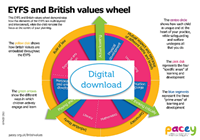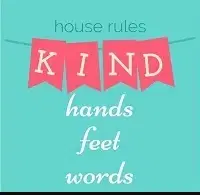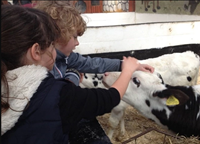What is the Prevent Duty?
The Prevent duty requires early years providers to have due regard to help “prevent the risk of people becoming terrorists or supporting terrorism” this is known as The Prevent duty. The Prevent duty is just one strand of the counter terrorism strategy known as CONTEST.
The current UK definition is set out in the Terrorism Act 2000 (TACT 2000). In summary this defines terrorism as ‘The use or threat of serious violence against a person or serious damage to property where that action is:
- designed to influence the government or an international governmental organisation or to intimidate the public or a section of the public; and
- for the purpose of advancing a political, religious, racial or ideological cause.’
Glossary of terms
You can read the Prevent duty guidance: for England and Wales here
What does this mean in practice?
Childcare and early years providers have a critical part to play, serving arguably the most vulnerable and impressionable members of society.
In England the Early years foundation stage statutory frameworks accordingly places clear duties on providers to keep children safe and promote their welfare. It makes clear that to protect children in their care, “All practitioners must be alert to any issues of concern in the child’s life at home or elsewhere.” (EYFS statutory framework for childminders p16 and EYFS statutory framework for group and school-based providers p22).
In Wales, the National Minimum Standards for Regulated Childcare places clear duties on providers to keep children safe and promote their welfare. Standard 20.5 states ‘Any persons working and looking after children are aware of safeguarding and child protection issues’.
It forms part of the settings safeguarding duty in both nations.
Settings should:
- have robust safeguarding policies in place to ensure that those at risk of radicalisation are identified and appropriate support is provided.
- have robust procedures for sharing information, both internally and externally
- have measures in place to prevent their facilities being exploited by radicalisers. This includes seeking to ensure that any event spaces or IT equipment are not being used to facilitate the spread of extremist narratives which encourage people into participating in or supporting terrorism.
- consider the use of IT equipment and network filters as part of their overall strategy to prevent people from becoming involved in, or supporting, terrorism.
In England inspectors will make a judgement on the effectiveness of leadership and management by evaluating the extent to which those with responsibility for governance ensure that the provider fulfils its statutory duties, for example under the Equality Act 2010, and other duties, for example in relation to the ‘Prevent’ strategy and safeguarding, and promoting the welfare of learners. (Education Inspection Framework).
In Wales, the Prevent duty fits with the Wellbeing theme within the CIW inspection framework which measures the extent to which children feel safe. Also, as stated in the Childcare, Play and Open Access Inspection and Ratings Provider Guidance during an inspection when considering the provider responsibilities for safeguarding, the Prevent duty guidance for England and Wales will be taken into account.
Training
Free training from GOV.UK: Prevent duty training: Learn how to support people susceptible to radicalisation
PACEY members can find out more in the Prevent duty factsheet in MyPACEY.
What are British Values?
‘Extremism’ was defined in the 2011 Prevent strategy as vocal or active opposition to fundamental British values. These values are:
- Democracy
- The rule of law
- Individual liberty
- Mutual respect and tolerance of different faiths and beliefs
What does this mean in practice?
These values are implicitly implied throughout the statutory frameworks in England and Wales as practitioners value and promote equality and diversity and prepare children for life in modern Britain. It is expected that practitioners do this in an age-appropriate way to help children to reflect on their differences and understand what makes them unique. Practitioners do this by:
- teaching children to be respectful and to recognise those who help us, and contribute positively to society
- developing children’s understanding of British values
- developing children’s understanding and appreciation of diversity
- celebrating what we have in common
- routinely challenging stereotypical behaviours and promoting respect for different people.
Here are some examples of what the promotion of British Values in the early years means in practice:
Democracy: making decisions together, for example giving opportunities to develop enquiring minds in an atmosphere where questions are valued.
Rule of law: understanding rules matter as cited in Personal Social and Emotional development for example collaborating with children to create rules and codes of behaviour.
Individual liberty: freedom for all, for example reflecting on their differences and understanding we are free to have different opinions
Mutual respect and tolerance: treat others as you want to be treated, for example sharing and respecting other’s opinions.
This downloadable poster gives an at-a-glance summary of how British values work within the Early years foundation stage statutory frameworks in England. Get yours from the shop.

For those in Wales, Welsh Government have produced guidance, Respect and Resilience – Developing Community Cohesion a useful document to support you in considering your approach to the Prevent duty in Wales.
More examples of how you can demonstrate British Values in your setting
Adapted from the Blog: Fundamental British Values in the Early Years by Andrea Turner 15 September 2015
Your Title Goes Here
Your content goes here. Edit or remove this text inline or in the module Content settings. You can also style every aspect of this content in the module Design settings and even apply custom CSS to this text in the module Advanced settings.
Democracy
Think of democracy as a situation where everyone is treated equally and has equal rights.
This is probably a very fair description of your own setting. In your setting you support children’s personal, social and emotional development by giving them opportunities to develop their self-confidence and self-awareness, to make choices and decisions about what they want to explore and how they’re going to use the resources you’ve made accessible to them.
Like here for instance: Hollie has filled up a bucket with water and fetched a paintbrush which she’s been painting the fence with. Does she mind Sean dipping in with a brush of his own? No, she lets him dip away and instructs him, in fact, to paint the decking for her. They are taking turns, sharing, collaborating and making decisions together. Skills that are essential if we are to get on in the adult world. I’m sure you can think of lots of other examples.
Here we have just one cardboard box and two explorers who want it for their rocket. Who goes first? What will we each do while we’re in the box and out of the box?
Now they are negotiating, setting rules for how long we can each spend in the box before we have to let somebody else have a turn. Negotiating who will pass over the construction pieces and what’s to be done with them exactly? Now we’re trusting that our friend, our collaborator, will be fair and will stick to our plan.
Rule of law
This is about understanding that rules matter to you.
This is about learning to manage our own feelings and behaviour: about learning right from wrong: about behaving within agreed and clearly defined boundaries: about dealing with the consequences.
You’ve probably got ‘house rules’ that feature these things. Top tip: keep them simple, less for young children to remember.
Individual liberty
Individual liberty focuses on children’s self-confidence and self-awareness and people and communities.
You help children to develop a positive sense of themselves. Every time you provide opportunities for children to gather wildflowers, mix their own colours for leaf painting or take part in a sack race you are helping them to develop their self-knowledge, self-esteem and increase their confidence in their own abilities.
Every time you share a favourite book with a child, splash in rock pools or build a compound for our dinosaurs together you are giving children the time and space to explore the language of feelings and responsibility; reflect on their differences and understand that everyone is free to have different opinions.
Mutual respect and tolerance
This is where you help children learn to treat others as we want to be treated, how to be part of a community, manage our feelings and behaviour; and form relationships with others.
Naturally you should have an ethos of inclusivity and tolerance in your setting, where views, faiths, cultures and races are valued and where you encourage children to engage with their wider community.
It is your job to help children to appreciate and respect their own culture and the culture of others.
You can help them explore similarities and differences between themselves and others; among families, faiths, communities, cultures and traditions; and to share and discuss practices, celebrations and experiences.
Wherever possible, it’s good to share special moments with your children’s families whether that involves welcoming them into our own settings or accepting invitations to their own celebrations.
When you see children becoming close friends you could encourage their parents to arrange play dates beyond the setting, giving parents and children opportunities to learn the importance of tolerant behaviours such as sharing and respecting other’s opinions.
After all, if children see and hear the adults they love respecting other cultures, religions and values then this will have a significant, positive impact upon their own behaviour and overall development.
For children to truly learn the importance of tolerance, they need to be given lots of opportunities to practice tolerance and to challenge stereotypes. For example, through sharing stories that reflect and value the diversity of children’s experiences and providing resources and activities that challenge gender, cultural and racial stereotyping.
This isn’t a tokenistic gesture about putting out the odd multicultural jigsaw or doll. It’s about having an accessible and continuous provision of a diverse range of resources such as musical instruments or junk modelling materials to make anything from Native American dreamcatchers to Anansi spiders to Gwiazdy stars, or lengths of fabric that can be saris just as easily as they can be superhero capes or Roman togas. If what you have available in the setting is diverse, then so will the children’s experiences of the world and the people around them.








